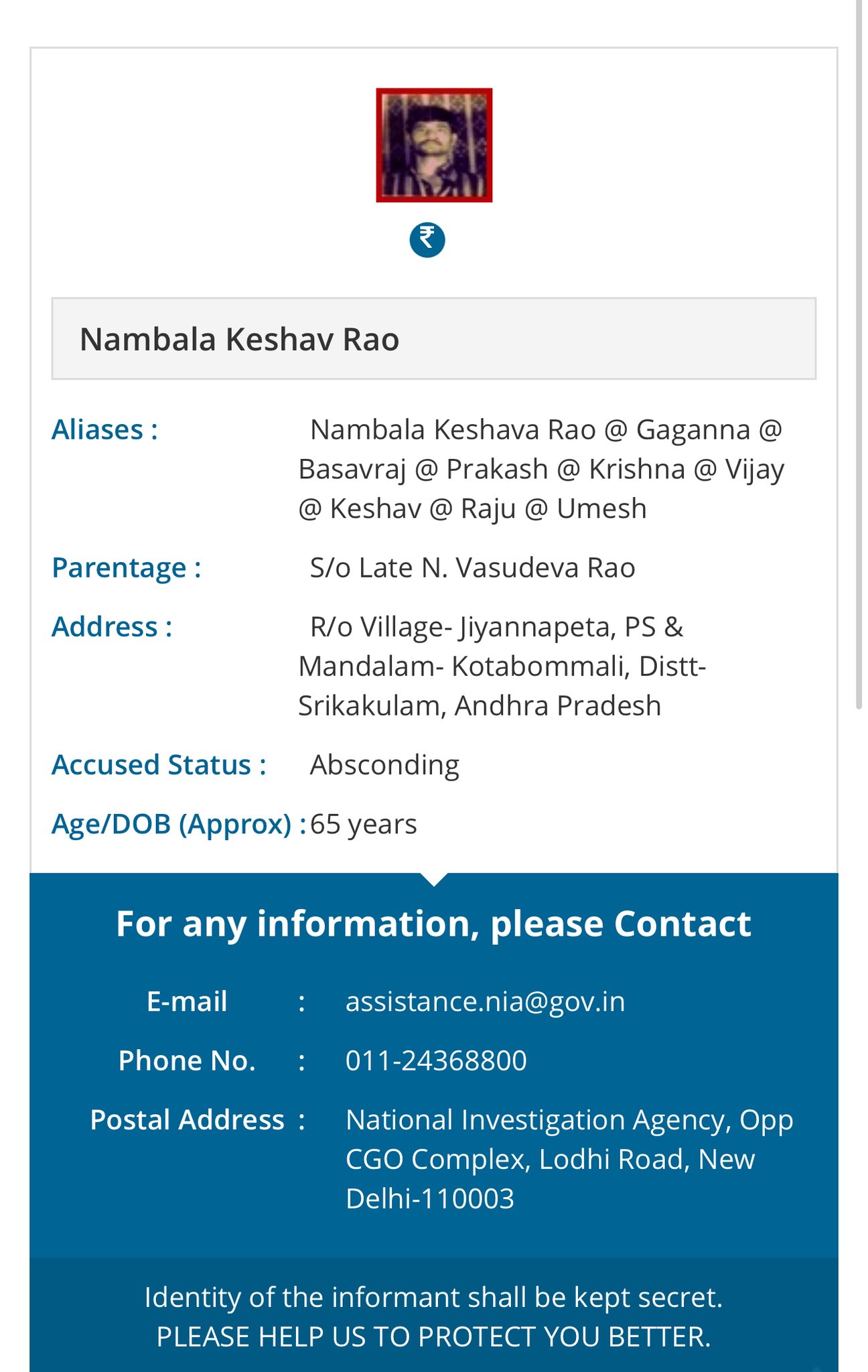Nambala Keshav Rao, widely known by his alias Basavraj, the General Secretary of the banned CPI (Maoist), was reportedly killed in a fierce encounter in the Maoist-dominated Maad region between Narayanpur and Bijapur districts in Chhattisgarh on Wednesday. The gun battle forms part of Operation Kagar, a long-term anti-Maoist campaign aimed at completely eliminating the rebel outfit from Indian territory by 31 March 2026.
Basavraj, in his early 70s and one of India’s most wanted Maoist leaders, carried a bounty of Rs 2.2 crore on his head. His death, if officially confirmed, would mark the most significant blow to the Maoist insurgency in recent years, particularly in the Dandakaranya zone, where the rebels have held sway for decades.
The encounter took place in a dense forest near Maad, a strategic rebel stronghold. Intelligence sources report that around 26 Maoists were killed, including other senior operatives such as Madhu of the Dandakaranya Special Zonal Committee and Naveen, linked to the Maoist propaganda magazine Jung.
The COBRA commandos and Chhattisgarh police, supported by central paramilitary forces, executed the coordinated assault. Authorities are awaiting forensic confirmation of Basavraj’s identity, though intelligence agencies and field officers are confident that the top Maoist leader has indeed been neutralised.
Who is Basavraj?
Basavraj hailed from Gianapet village in Vizianagaram district of Andhra Pradesh and was drawn into the radical left movement during his student years in Warangal, Telangana. e was actively involved with the Radical Students Union (RSU) and later pursued engineering at the Regional Engineering College (now NITWarangal).

He had been underground for over 40 years, using his deep knowledge of guerrilla tactics, explosives, and ambush strategies to build and strengthen the Maoist armed movement. Security officials consider him the mastermind behind several deadly attacks, including the Dantewada massacre (2010), which claimed the lives of 76 CRPF personnel, and the Jeeram Ghati ambush (2013), in which 27 people, including senior Congress leaders, were killed.
Also read: 31 naxals killed along Chattisgarh-Telangana border: Amit Shah
Basavraj served as the Chief of the Central Military Commission (CMC)—the military wing of the CPI (Maoist)—before being promoted to General Secretary in November 2018, succeeding Muppalla Lakshmana Rao alias Ganpathy. His elevation was reportedly proposed by Ganpathy himself during a politburo meeting in February the previous year.
This leadership transition was publicly acknowledged in a CPI (Maoist) press release dated 10 November 2018, where Basavraj was named the new head of the party. The letter cited Ganpathy’s declining health as the reason for the change and hailed his 25-year leadership over the People’s War Group (PWG), which merged with the Maoist Communist Centre (MCC) in 2004 to form the CPI (Maoist) at Belpahari in the western part of West Bengal.
Impact on the Maoist movement
Security analysts suggest Basavraj’s death will create a leadership vacuum and severely hamper the Maoists’ operational capabilities, particularly their ability to organise large-scale attacks or sustain strategic control in their core areas. Basavraj’s death signals a potential turning point in India’s decades-long struggle against left-wing extremism, especially in central and eastern states such as Chhattisgarh, Jharkhand, Odisha, and parts of Madhya Pradesh.



